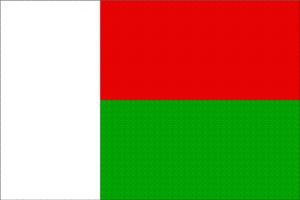Language/Plateau-malagasy/Vocabulary/Family-Members
| ◀️ Conjunctions and Their Usage — Previous Lesson | Next Lesson — Relationships and Emotions ▶️ |
Introduction[edit | edit source]
In this lesson, we will explore the names of family members in Plateau Malagasy. Family is an important aspect of Malagasy culture, and understanding the vocabulary related to family members is essential for effective communication. Whether you want to introduce your family members or talk about someone else's family, this lesson will provide you with the necessary vocabulary and phrases. By the end of this lesson, you will be able to confidently talk about family relationships in Plateau Malagasy.
Family Members[edit | edit source]
Family is highly valued in Plateau Malagasy society, and the language reflects this importance. Let's begin by learning the names of immediate family members in Plateau Malagasy:
Parents[edit | edit source]
In Plateau Malagasy, the word for "mother" is "ray" and the word for "father" is "rainy". Here are some examples of how to use these words in sentences:
- My mother is beautiful. - "Ny ray ahy dia tsara be."
- His father is a doctor. - "Ny rainy azy dia mpitsabo."
Here is a table summarizing the vocabulary for parents in Plateau Malagasy:
| Plateau Malagasy | Pronunciation | English Translation |
|---|---|---|
| ray | /raɪ/ | mother |
| rainy | /ˈreɪ.ni/ | father |
Siblings[edit | edit source]
When referring to siblings in Plateau Malagasy, there are different words depending on whether the sibling is older or younger. The word for "older brother" is "raibe", while the word for "younger brother" is "ray". Similarly, the word for "older sister" is "ranorohi", while the word for "younger sister" is "ravitra". Let's look at some examples:
- My older brother is tall. - "Ny raibe ahy dia lavitra."
- Her younger sister is smart. - "Ny ravitra azy dia tonga lafatra."
Here is a table summarizing the vocabulary for siblings in Plateau Malagasy:
| Plateau Malagasy | Pronunciation | English Translation |
|---|---|---|
| raibe | /ˈraɪ.beɪ/ | older brother |
| ray | /raɪ/ | younger brother |
| ranorohi | /raˌnoˈro.hi/ | older sister |
| ravitra | /raˈvi.tra/ | younger sister |
Children[edit | edit source]
In Plateau Malagasy, the word for "son" is "zaza lehilahy" and the word for "daughter" is "zaza vavy". Here are some examples:
- Their son is studying abroad. - "Ny zaza lehilahy azy dia mandroso tany ivelany."
- Our daughter is a teacher. - "Ny zaza vavy antsika dia mpampianatra."
Here is a table summarizing the vocabulary for children in Plateau Malagasy:
| Plateau Malagasy | Pronunciation | English Translation |
|---|---|---|
| zaza lehilahy | /ˈza.za ˌle.hiˈla.hi/ | son |
| zaza vavy | /ˈza.za ˈva.vi/ | daughter |
Extended Family[edit | edit source]
Plateau Malagasy culture places a strong emphasis on extended family and kinship ties. Here are some common terms for extended family members:
- "Grandmother" - "neny"
- "Grandfather" - "rahy"
- "Aunt" - "zaza"
- "Uncle" - "amboara"
- "Cousin" - "arambaventy"
- "Niece" - "zazavavy"
- "Nephew" - "zazalahy"
Here are some examples of sentences using these terms:
- My grandmother loves to cook. - "Ny neny ahy dia mahay mampiasa."
- His uncle is a farmer. - "Ny amboara azy dia mpamboly."
Here is a table summarizing the vocabulary for extended family members in Plateau Malagasy:
| Plateau Malagasy | Pronunciation | English Translation |
|---|---|---|
| neny | /ˈne.ni/ | grandmother |
| rahy | /ˈra.hi/ | grandfather |
| zaza | /ˈza.za/ | aunt |
| amboara | /amˈbo.a.ra/ | uncle |
| arambaventy | /a.raˌmˈba.ven.ti/ | cousin |
| zazavavy | /ˌza.zaˈva.vi/ | niece |
| zazalahy | /ˌza.zaˈla.hi/ | nephew |
Cultural Insight[edit | edit source]
In Plateau Malagasy culture, family plays a central role and is considered the foundation of society. The extended family, including aunts, uncles, and cousins, often live close to one another and maintain strong relationships. Family gatherings and celebrations are common, providing opportunities for family members to connect and strengthen their bonds. Additionally, respect for elders is highly valued, and it is customary for younger family members to show deference and seek their guidance and wisdom.
Historically, the Malagasy people have lived in close-knit communities, relying on each other for support and cooperation. This communal mindset extends to the family unit, where everyone contributes to the well-being of the group. Family members often work together on agricultural activities, such as farming and fishing, ensuring the community's sustenance and prosperity.
Exercises[edit | edit source]
1. Translate the following sentences into Plateau Malagasy:
a) My mother is kind. b) His older brother is a teacher. c) Our daughter is studying medicine. d) Their niece is a talented musician.
2. Match the Plateau Malagasy words with their English translations:
a) zaza lehilahy b) ravitra c) rainy d) neny
1) niece 2) son 3) younger sister 4) grandmother
Solutions[edit | edit source]
1. a) Ny ray ahy dia tsara hatrany.
b) Ny raibe azy dia mpampianatra. c) Ny zaza vavy antsika dia mandroso fahalalana. d) Ny zazavavy azy dia mpikabary mahery.
2. a) 2) son
b) 3) younger sister c) 1) niece d) 4) grandmother
Conclusion[edit | edit source]
In this lesson, we have learned the vocabulary for family members in Plateau Malagasy. We explored the terms for parents, siblings, children, and extended family members. Understanding these terms is essential for effective communication and allows us to talk about our own families and ask about others' families. Keep practicing and incorporating these words into your conversations to become more comfortable and fluent in Plateau Malagasy. Vinavina! (Good luck!)
Other Lessons[edit | edit source]
- Animals
- How to say Good Bye?
- Drinks
- Common Food Items
- Clothes
- Education
- Numbers and Counting
- Express Surprise
- Health
Template:Plateau-malagasy-Page-Bottom
| ◀️ Conjunctions and Their Usage — Previous Lesson | Next Lesson — Relationships and Emotions ▶️ |

